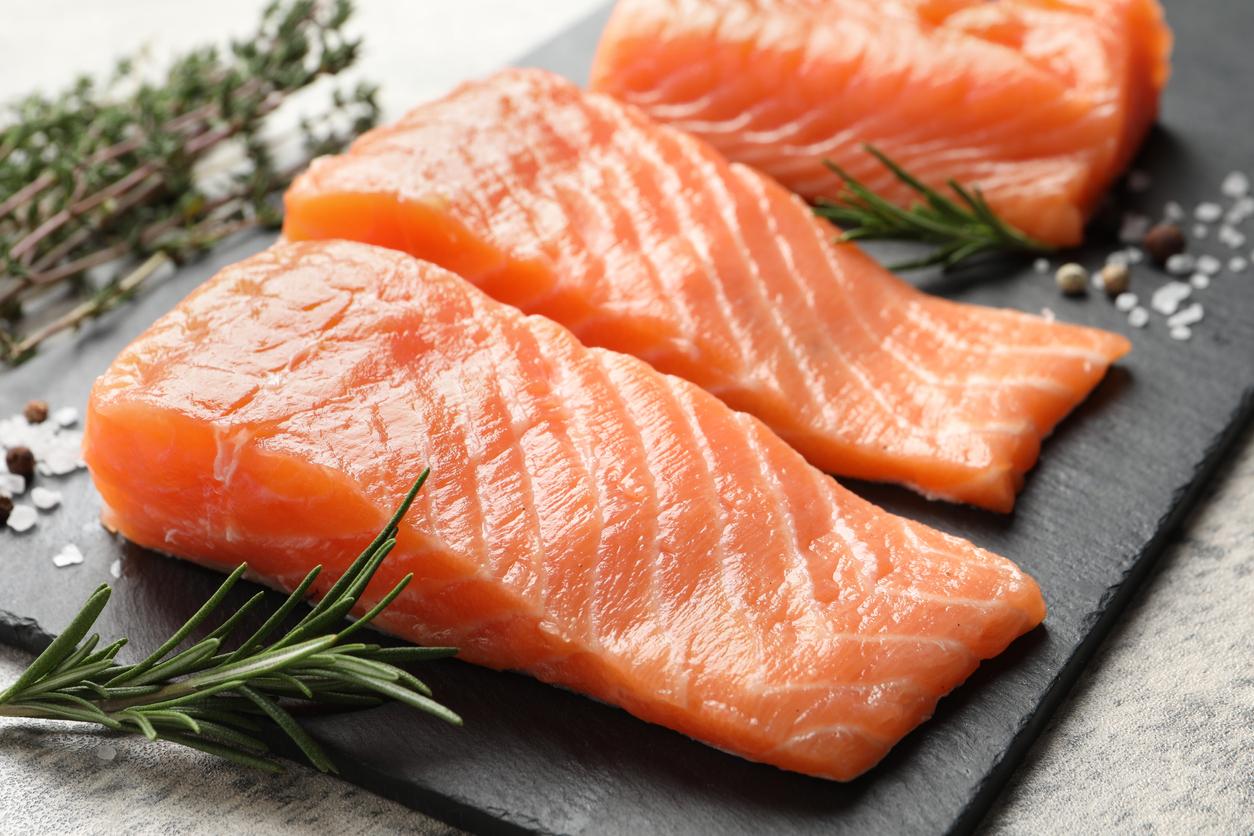December 15, 2005 – American researchers have just revived the debate: contamination of farmed salmon by organic pollutants would represent a health risk. Its consumption would even increase the risk of cancer.
The data used by American researchers is not recent. They were the subject of two publications in 20041.2. The researchers pointed out that farmed salmon contained more potentially carcinogenic organic contaminants than wild salmon. They also revealed that farmed salmon that came from Europe was more contaminated than that raised in the Americas (North and South). These contaminants are essentially PCBs and PBDEs, as well as their derivatives.
In their new study3, the researchers used these data to try to assess the risk / benefit ratio associated with the consumption of farmed salmon, especially during pregnancy. They based their calculations on the recommendation of US health authorities that consuming one gram per day of omega-3 fatty acids would prevent cardiovascular disorders. They also took into account the risks of contracting cancer associated with organic pollutants, based on the evaluation of accepted data.
According to the authors of the study, consuming the amount of salmon necessary to obtain one gram per day of omega-3s would also represent a cancer risk exceeding 24 times the level deemed acceptable.
Alarmist estimates?
According to the Dr Eric Dewailly4, who heads the Public Health Research Unit of the Center hospitalier universitaire de Québec, the estimates of these researchers are excessive and needlessly alarmist. “It’s impossible to quantify and weigh all the risks and all the benefits,” he says.
He also points out that if the risk were as great as these researchers seem to claim, there should be an epidemic of cancer among the Inuit who have been exposed for several decades to these contaminants. In this population, cancer rates are barely 30% of those found in Quebecers, who are considerably less exposed to these same pollutants.
In light of the studies he and his colleagues have carried out on the omega-3 and contaminant levels in salmon sold in Quebec5, the Dr Dewailly would like to point out that, even for pregnant women, consuming salmon is more beneficial than dangerous. This opinion corresponds moreover to the official position of the health authorities of Quebec.
Pierre Lefrançois – PasseportSanté.net
According to Health News.
1. Hites RA, Foran JA, Carpenter DO, Hamilton MC, Knuth BA, Schwager SJ. Global assessment of organic contaminants in farmed salmon.Science. 2004 Jan 9; 303 (5655): 226-9.
2. Hites RA, Foran JA, Schwager SJ, Knuth BA, Hamilton MC, Carpenter DO. Global assessment of polybrominated diphenyl ethers in farmed and wild salmon.About Sci Technol. 2004 Oct 1; 38 (19): 4945-9.
3. Foran JA, Good DH, Carpenter DO, Hamilton MC, Knuth BA, Schwager SJ. Quantitative analysis of the benefits and risks of consuming farmed and wild salmon.J Nutr. 2005 Nov; 135 (11): 2639-43.
4. Dr. Éric Dewailly is also associate professor in environmental health in the Department of Social and Preventive Medicine of the Faculty of Medicine at Laval University.
5. Blanchet C, Lucas M, Dewailly É. Analyzes of omega-3 fatty acids and environmental contaminants in salmonids, final report, December 21, 2004. Public health research unit, CHUL research center (CHUQ) and Institut national de santé publique du Québec.














